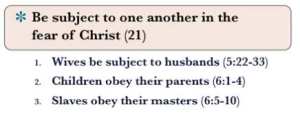 Yes, it is Monday, but I am still stuck on Sunday’s Gospel from John that began like this:
Yes, it is Monday, but I am still stuck on Sunday’s Gospel from John that began like this:
Many of Jesus’disciples who were listening said,
“This saying is hard; who can accept it?”
Since Jesus knew that his disciples were murmuring about this,
he said to them, “Does this shock you?
My mind goes in a few directions:
1. The passage that we heard last Sunday, which precedes this one, about eating Jesus’ flesh and drinking his blood
2. The reading from Ephesians that preceded the Gospel today
3. Accepting any of it – and then living it
This is not some click through on the internet, in which we “accept” and move on. There is quite a bit to accept, and how we see, hear, interpret, and understand these things, matters. This makes me want to offer a few thoughts and questions for prayer, reflection, and discussion, should you be moved to speak. And yes, I hope you do comment.
If you are a Catholic, do you ever think about what it means to eat flesh and drink blood?
 There are countless movies, TV programs, books, and more about zombies and vampires. Just last night, a new one premiered. What good is a zombie if they aren’t sexy, blond zombie – right? (Insert deep sigh and big eye roll here) I’m no fan of the genre, so the whole zombie thing is lost on me. It is curious to me that we as a culture are obsessed with such dystopian themes, and that is seen clearly in the on-going popularity of zombie and vampire material.
There are countless movies, TV programs, books, and more about zombies and vampires. Just last night, a new one premiered. What good is a zombie if they aren’t sexy, blond zombie – right? (Insert deep sigh and big eye roll here) I’m no fan of the genre, so the whole zombie thing is lost on me. It is curious to me that we as a culture are obsessed with such dystopian themes, and that is seen clearly in the on-going popularity of zombie and vampire material.
So the question for me is, why do we (the collective we) think so much about eating flesh and drinking blood in art and medai? Yet, in our religious or spiritual reality it is often not thought about deeply, or even considered. Many, typically outside of the church, would scoff at our belief.
Truly we are called to believe this consumption of flesh and blood. No wonder the apostles were murmuring to one another! Who can accept it?
 Um, Ephesians. (insert bigger, louder, deeper sigh and a tear rolling down my cheek, hold the eye roll) Notice how the lectionary gives the parish an opt-out with two potential versions, one that skips the wives be submissive to your husbands. As a lector, I am always grateful when I do not have to read on this Sunday.
Um, Ephesians. (insert bigger, louder, deeper sigh and a tear rolling down my cheek, hold the eye roll) Notice how the lectionary gives the parish an opt-out with two potential versions, one that skips the wives be submissive to your husbands. As a lector, I am always grateful when I do not have to read on this Sunday.
What message did you hear on Sunday? I heard a homily that reflected on cultural context and the place of both women and slaves at that time in history. This allowed me to exhale, because such thoughts were commonly accepted at St Paul’s time. And far into our own time! The idea we were told, is that we are all to submit to Christ.
Sounds good, like eating flesh and blood, but along those lines, do we really think about it? Deeply? Submitting is seen as cowardice in our culture, aren’t we all warriors and super-achievers? Or supposed to be? Yet we are all supposed to be submissive. Who can accept it?
 Which brings us to the entire idea of who can accept what… I am left thinking that we must all submit to Christ, which means accepting a lot of difficult things. This means I am stuck with having to wrestle with topics that are hard to consider, and to live more deeply. What a pain! Can’t I just go to mass on Sunday and leave it at that? Of course I can – and you can – and that is that, but what do we miss by not diving deeper?
Which brings us to the entire idea of who can accept what… I am left thinking that we must all submit to Christ, which means accepting a lot of difficult things. This means I am stuck with having to wrestle with topics that are hard to consider, and to live more deeply. What a pain! Can’t I just go to mass on Sunday and leave it at that? Of course I can – and you can – and that is that, but what do we miss by not diving deeper?
Or do we submit, come to the table, and dive into what we can barely believe? This is not time for literalistic and fundamentalist readings of things, but rather an invitation to submit to the Christ who brings us life. Sounds good, I feel like I believe it, but I’m holding back somehow, not fully accepting something. I don’t know, what do you think. These saying are hard, aren’t they? Who can accept it?

Yesterday as lector in my parish, I did have to read Paul’s letter to the Ephesians – the long version! As I was preparing for this reading, I found it challenging to determine which words/phrases to emphasize…in the sermon the priest stated the cultural context of Paul’s letter (wives being their husband’s property), & Paul’s boldness in exhorting husbands to love their wives as they love their own bodies… It’s helpful to understand the context, but the words, “Be submissive”, are hard to hear – yet, aren’t we called to be submissive to God, who knows us better than we know ourselves and wants us to be whole and holy….
LikeLike
Well said dear Donna Marie. ❤
LikeLike
I heard a homily yesterday where the priest talked about how much our beliefs mattered, how Jesus let those who did not believe walk away and did not chase them down or try to make deals with them about believing some things and not others. That our belief in eating Christ’s body and drinking his blood matters a lot to Jesus and that we should pray for the grace to believe. He also went on to describe his extended family, half of which is Methodist, insinuating that they (and other Protestant denominations) represented the ones who walked away and that we are so very fortunate because we took those words literally and stayed and believed. While my husband did not get the same message, I was very struck by his “we are better than them” attitude. Needless to say, since most of my family is not Catholic, it was a very challenging message for me and I’ve been dwelling on it ever since. And then there’s my snarky thought that if it is so important to consume “body and blood of Christ,” why are the people not offered the blood and only the body?
No mention of the Ephesians reading and it’s connection to the Gospel. (Here is where I insert my eye roll and sign). On the walk back from church I commented to hubby that I don’t think I’ll find what I’m looking for in the Catholic church here. Does that mean I’m one of the ones who walked away? No wonder I can’t sleep at night…
LikeLike
Five words – please do not walk away. More than that, but that is all I have time for now. ❤ My heart and prayers to you!
LikeLike
There are some days that I forget that the Eucharist is the body and blood of Christ. When it does come to me in the moment, it changes everything about the Eucharist for me. It is so much more, inside and spiritual, compelling and emotional. It brings me to tears. There are few things that affect me that way.
One comment about the zombie reference since I watched that premiere and I watch the show it prequels. Blond and beautiful, yes, but the point of that character is to look very much like her own self to the boyfriend. The turning is new, it’s still evolving in a way that they’re not at the sickness level as the other show. They want them to look more human than zombie to feed (no pun intended) into the changes that happen as they become more and more like the monster. In the other show, the second one, there are no pretty, sexy zombies.
LikeLike
I wasn’t picking on her specifically, but I’m always a little fussy about stuff like that. ☺️
LikeLike
I’m definitely with you on that.
LikeLike
I find the attraction of the Zombie culture by our youth to be disturbing. It is not about how am I going to make a difference in this world by the kind of life I live. There is no reflection on how can I prepare myself to be of service. Rather, It is about how can I suck the life out of another, so that I do not need to make a contribution.
The Eucharist for me is how do I hand over my own broken life, how do I pour out my life for others. How do I take the wheat that has been through the mill and the grapes bruised into wine and say, “may the Lord accept this sacrifice at our hands”.
LikeLike
Ray, zombies make me think of the self-focused cycle of endless consumption. Thank you.
LikeLike
Father’s emphasis last Sunday was, “Jesus then said to the Twelve, “Do you also want to leave?”
Simon Peter answered him, “Master, to whom shall we go? You have the words of eternal life.” When the teaching is hard, take time, think it over.
LikeLike
That’s my favorite part Brian!
LikeLike
Well, yesterday at St. Andrew’s (Episcopal) we had combined Morning Prayer and Communion, so we had only the OT and Gospel readings (no Ephesians). Some of the points of the sermon (I hope I am reporting reasonably well): This whole section of John really needs to be understood more from a mystical than a literal viewpoint. Eating and drinking Christ speaks to our need to internalize Christ and allow God to act through us (a very Pauline concept as well). John is calling us not so much to “believe that” certain things are factual as to “believe in” Christ. Our relationship with Christ is primary (I always like to remind our priest when he comes across sounding like Marcus Borg, because he has disagreements with Borg, although he agrees with him on this important principle). Accepting difficult things is not just about the idea of eating flesh and drinking blood, but more so about the personal transformation that this implies. Are we really ready to accept (submit to?) the costs of discipleship that result from this transformation?
This all tied in rather neatly with some things that were discussed Saturday in a workshop I attended on common obstacles that keep people from starting or continuing a Centering Prayer practice. One of the things that keep some people from a contemplative practice is the inability to understand or accept the principle of Divine Indwelling, which is central to contemplative prayer and also is central to understanding the Eucharist. Another obstacle (one that I wrestle with) is fear of the cost of the transformation that is the intended result of a contemplative prayer practice. The basic principle of Centering Prayer is our intention to consent to God’s presence and action within. This sounds a lot like the submission of which you write. In this light, our problem with submission is not just that it is counter-cultural, but that it implies a real cost to us of accepting personal change.
LikeLike
Bill – I could not agree more. What a beautiful commentary you leave. I am grateful!
LikeLike